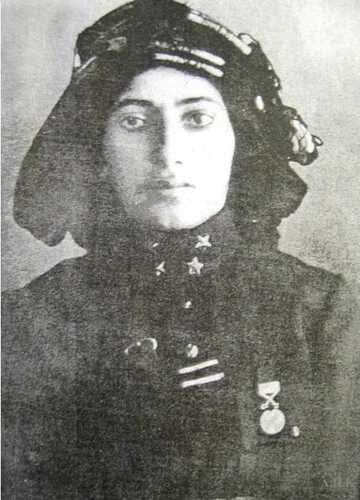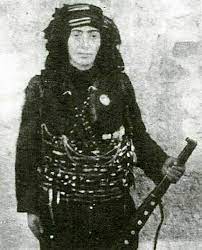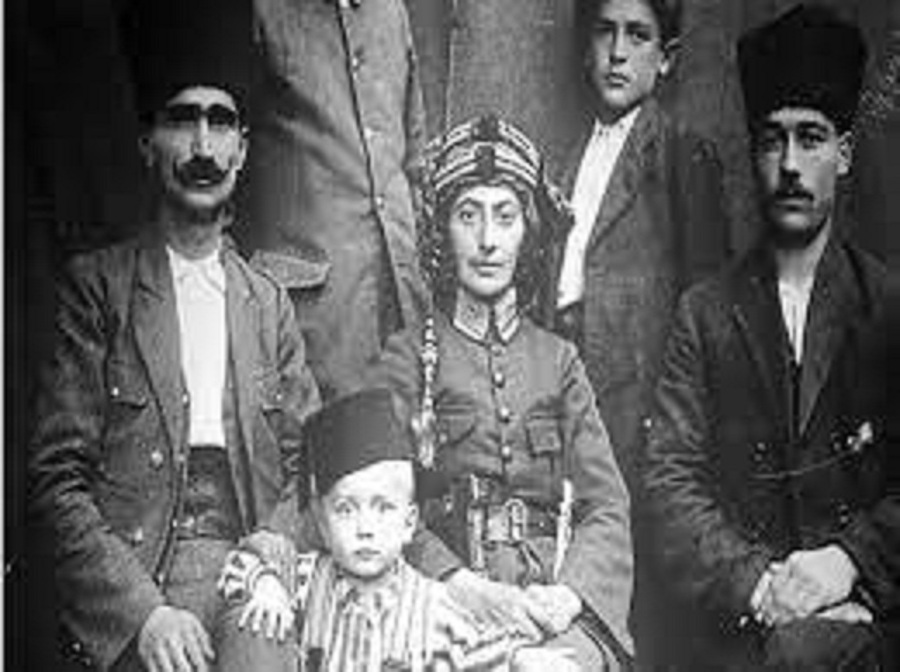Fate Rash is the nickname of Aisha Khanm, daughter of Haji Osman Bag, is from Andirin, Qaraman Marash province, and is the head of one of the largest tribes in the North part of Kurdistan. After the arrest and imprisonment of her husband and tribal chief by the Ottoman state, she became a tribal chief to express her gratitude to the Ottoman Sultan and hoped for her husband's release; he participated in the Crimean War with about 300 Kurdish fighters and showed unprecedented courage in this war.
Although some books and magazines have briefly mentioned Fate Rash, according to a report published in the Pal Mal Gazette, the biography, and the story of this brave lady has not been fully explained. Turks and Turkmens reject that Fate Rash is a Kurd. Among the Kurds, due to the lack of a Kurdish state and a culture of writing biographies of historical figures on the other hand, no serious research has been done on it.

The participation of this woman fighter in the Crimean War in order to free her husband shows the historical tragedy of a people who have been made participants and victims of the internal and foreign policies of the occupying states without their will and consent.
The division of the Kurdish nation between Iran and the Ottoman Empire, and the continuous hostility and wars between these two empires with each other until the beginning of World War I, caused misery and tragedy for the Kurdish people, destroyed Kurdistan, and killed thousands of innocent people.
While suppressing the Kurdish liberation movement, these states have tried to use Kurdish armed forces against each other or neighboring states. In the Iranian-Ottoman wars with Tsarist Russia, the Russians used Kurdish national feelings against the Ottomans and Iran, and the Iranians and Ottoman Turks tried to encourage Kurdish tribal chiefs and emirs to fight the Russians by arousing Kurdish religious sentiment against the "Christian and infidel" Russians.
The Kurds first confronted the Russians during the Iran-Russia war. As a result of this war, Karabakh, the land of the Kurds, came under the control of the Russian Empire. In the Tsarist Russian war with France, Britain, the Sardinian Empire, and the Ottoman Empire, historically described as the "Crimean War", the fighting parties made great efforts to attract Kurdish tribes.

Despite the participation of some Kurds, the Turks had not been able to win the support of any of the well-known Kurdish leaders. Meanwhile, some tribes near the Russian border, such as Zilan, Haidaran, etc., had supported the Turks, and the Russians had been able to form two armies of Kurds from the South Caucasus to fight. As the Turks weakened and retreated from the war, these tribes gradually withdrew their support for the Turks and established friendly relations with the Russians. After the victory of Russia and the Turkish defeat in the Bayazid region , the Kurds left the ranks of the Turkish army at all levels. The decline of the Ottoman political and military position facilitated the growth of the northern Kurdish uprising led by Badr Khan's nephew، Yazdansher. In a short time, this uprising covered a significant part of Kurdistan and the cities of Batlis, Sirt, Mosul, and the areas south of Lake Van, etc. fell under the control of the uprising forces. This uprising was declined after the arrest of Yazdansher during negotiations with the Turks.
A brief analysis of these events shows that unless the Kurds have their own state and entity, their people will be victims of wars and conflicts of the occupying states for various reasons. The dominant nation tries to subjugate or ruthlessly suppress the Kurds and other nations in various ways to stabilize its power.








